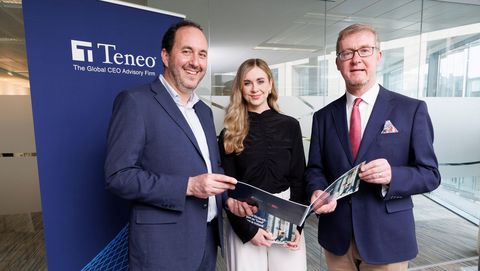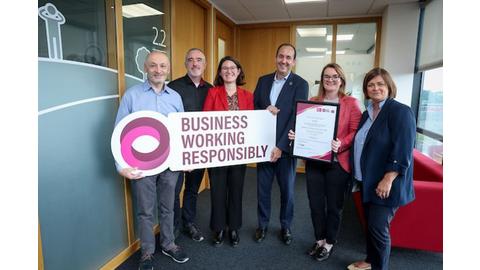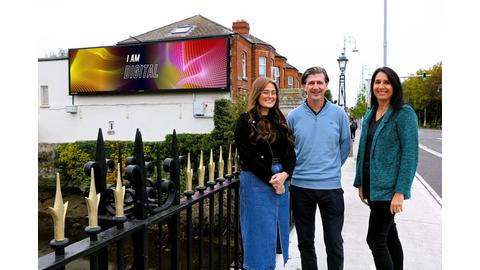Members
What’s your Social Dividend? Report from Teneo Ireland, FICC Patron

From left to right, Tomás Sercovich (CEO Business in the Community Ireland), Orlaith Shinnick (Director at Teneo) and Alan Tyrrell (Senior Managing Director, Teneo)
Alan Tyrrell, Senior Managing Director, Teneo Ireland.
Social Impact, or the ‘S’ in ESG, when done properly drives competitive advantage, builds stakeholder trust, strengthens resilience and creates value. These are the key findings in a new report from FICC patron Teneo, in partnership with Business in the Community Ireland. The report highlights that approximately 40% of respondents identified the CEO as the executive sponsor for social impact, followed by the CPO at 24%. Notably, 14% of companies reported having no executive sponsor for social impact.
Titled ‘The Social Dividend’, the report builds a six-stage framework for social impact strategy design. Speaking about the research, Tomás Sercovich, CEO of Business in the Community Ireland, said: Over the past 25 years, we have seen a clear evolution in the importance and role of social impact in business strategy. Today, social impact is aligned to business metrics and objectives that drive innovation while simultaneously addressing societal needs and expectations. Businesses that model this behaviour are much needed if we want to tackle societal inequalities and ensure no-one is left behind in the climate transition. Businesses are powerful agents of change, and this report shows the key success factors of social impact that make a difference for individual companies and wider society.
A framework for impact
Measurement is a key item in any social impact strategy and comes in two waves. Firstly, there is calibration of social impact with business goals. The interviewees for our research made it clear that their companies establish quantifiable key performance indicators on social impact – tracking volunteer hours, benchmarking employee engagement, monitoring community engagement.
In addition, validation of the impact is vital and assessing the direct impact on business goals and the social issue being addressed is a key success factor. By leveraging data-driven insights, these companies continuously refine their approach amplifying both business and social impact.
‘Good’ Communication
Communicating social impact can present challenges but our framework gives helpful guidance. Leaders who communicate with authenticity on social impact communicate it as a business outcome, not simply a ‘nice thing to do’ and follow three principles.
First, build trust and ensure stakeholders – be it employees, customers, shareholders, or the wider community, know your rationale, focus and desired outcomes for both social impact and business impact. Second, work only on social impact programmes where you can deliver a clear impact but also ideally generating a distinct competitive edge. And finally, candidly share the real-world benefits of the initiatives you undertake, highlighting the positive effect, what you learned and your ongoing commitment. By deploying an honest and authentic narrative, businesses can dispel concerns of virtue signaling and reinforce a credible, long-term commitment to making a difference.
In today’s world of unprecedented change business leaders in Ireland are clear —social impact is a key component of strategy to address macro challenges, overcome market headwinds and create value. Far from being an afterthought, social impact is a source of innovation, opportunity, differentiation, cost reduction and business growth. It delivers a clear and measurable dividend for business and society. Full details of the social impact of framework can be found in the report at the links below.
Ends
· The Social Dividend report can be found on the Teneo website www.teneo.com or via the link here: Article on Teneo.com: http://bit.ly/3Eq8luj
· Direct link to PDF: https://bit.ly/4kapJ5x


